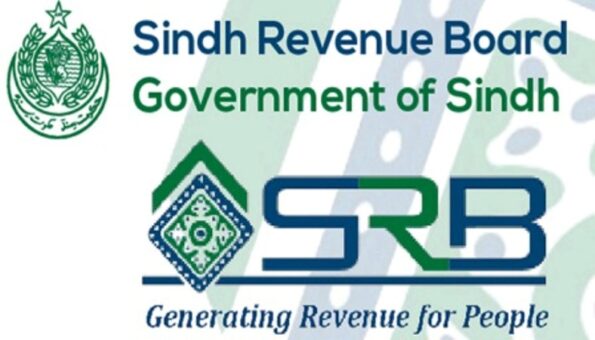ISLAMABAD: Federal Board of Revenue (FBR) on Tuesday notified transfers and postings of 37 Commissioners of Inland Revenue Service (IRS) in BS-19-20 with immediate effect under further orders.
Following officers have been transferred and posted by the FBR:
01. Dr. Shahid Siddiq Bhatti (Inland Revenue Service/BS-20) has been transferred and posted as Director, Directorate of Internal Audit (Inland Revenue), Lahore from the post of Commissioner, (Zone-VII) Corporate Regional Tax Office, Lahore.
02. Mehmood Hussain Jafari (Inland Revenue Service/BS-20) has been transferred and posted as Commissioner Inland Revenue (Zone-VII) Corporate Regional Tax Office, Lahore from the post of Director, Directorate of Law, Lahore.
03. Dr. Muhammad Sarmad Qureshi (Inland Revenue Service/BS-20) has been transferred and posted as Commissioner Inland Revenue (Zone-IV) Corporate Regional Tax Office, Lahore from the post of Commissioner, (Zone-II) Regional Tax Office II, Lahore.
04. Imtiaz Ali Solangi (Inland Revenue Service/BS-20) has been transferred and posted as Commissioner Inland Revenue (Zone-VI) Corporate Regional Tax Office, Karachi from the post of Commissioner, (IP/TFD) Corporate Regional Tax Office, Karachi.
05. Muhammad Irfan Raza (Inland Revenue Service/BS-20) has been transferred and posted as Commissioner Inland Revenue (Zone-I) Large Taxpayers Unit, Lahore from the post of Director, Directorate of Internal Audit (Inland Revenue), Lahore.
06. Dr. Shah Khan (Inland Revenue Service/BS-20) has been transferred and posted as Commissioner Inland Revenue Inland Revenue (Appeals), Peshawar from the post of Commissioner, (Corporate Zone) Regional Tax Office, Peshawar.
07. Ms. Shazia Abid (Inland Revenue Service/BS-20) has been transferred and posted as Commissioner Inland Revenue (Zone-IV) Regional Tax Office II, Karachi from the post of Commissioner, (Zone-IV) Large Taxpayers Unit, Karachi.
08. Amjad Farooq (Inland Revenue Service/BS-20) has been transferred and posted as Commissioner Inland Revenue (Zone-II) Large Taxpayers Unit, Lahore from the post of Commissioner, (Zone-III) Large Taxpayers Unit, Lahore.
09. Sajjad Taslim Azam (Inland Revenue Service/BS-20) has been transferred and posted as Commissioner Inland Revenue (Jhang Zone) Regional Tax Office, Faisalabad from the post of Commissioner, (Zonve-V) Regional Tax Office II, Lahore.
10. Muhammad Jamil Bhatti (Inland Revenue Service/BS-20) has been transferred and posted as Commissioner Inland Revenue Inland Revenue (Appeals-III), Lahore from the post of Commissioner, Regional Tax Office, Sialkot.
11. Ms. Hina Akram (Inland Revenue Service/BS-20) has been transferred and posted as Commissioner Inland Revenue (Zone-I) Regional Tax Office II, Karachi from the post of Commissioner, (Zone-II) Corporate Regional Tax Office, Karachi.
12. Ms. Farhat Qayum (Inland Revenue Service/BS-20) has been transferred and posted as Commissioner Inland Revenue (City Zone) Regional Tax Office, Rawalpindi from the post of Director, Directorate of Internal Audit (Inland Revenue), Islamabad.
13. Adnan Inamullah Khan (Inland Revenue Service/BS-20) has been transferred and posted as Director, Directorate of Internal Audit (Inland Revenue), Rawalpindi from the post of Commissioner, (City Zone) Regional Tax Office, Rawalpindi.
14. Muhammad Khalid Malik (Inland Revenue Service/BS-20) has been transferred and posted as Commissioner Inland Revenue (WHT) Regional Tax Office, Sargodha from the post of Commissioner, (Lyallpur Zone) Regional Tax Office, Faisalabad.
15. Maqsood Jahangir (Inland Revenue Service/BS-20) has been transferred and posted as Commissioner Inland Revenue (Zone-IV) Large Taxpayers Unit, Islamabad from the post of Commissioner, (Zone-IV) Corporate Regional Tax Office, Karachi.
16. Ahsan Raza Ch. (Inland Revenue Service/BS-20) has been transferred and posted as Commissioner Inland Revenue (Zone-II) Regional Tax Office, Sargodha from the post of Commissioner, (Jhang Zone) Regional Tax Office, Faisalabad.
17. Ms. Irum Sarwar (Inland Revenue Service/BS-20) has been transferred and posted as Commissioner Inland Revenue (Chenab Zone) Regional Tax Office, Faisalabad from the post of Commissioner, (WHT) Regional Tax Office, Faisalabad.
18. Muhammad Anwar (Inland Revenue Service/BS-20) has been transferred and posted as Commissioner Inland Revenue (Corporate Zone) Regional Tax Office, Faisalabad from the post of Commissioner, (Zone-I) Regional Tax Office, Gujranwala.
19. Muhammad Naveed Akhtar (Inland Revenue Service/BS-20) has been transferred and posted as Commissioner Inland Revenue (HRM) Large Taxpayers Unit, Lahore from the post of Commissioner, Inland Revenue (Appeals-III), Lahore.
20. Muhammad Majid (Inland Revenue Service/BS-20) has been transferred and posted as Commissioner Inland Revenue (Zone-II) Regional Tax Office II, Lahore from the post of Commissioner, (Zone-I) Large Taxpayers Unit, Lahore.
21. Muhammad Shaukat Hayat Cheema (Inland Revenue Service/BS-20) has been transferred and posted as Commissioner Inland Revenue (Zone-I) Large Taxpayers Unit,
Islamabad from the post of Commissioner, (East Zone) Regional Tax Office, Islamabad.
22. Khaliq Farooq Mian (Inland Revenue Service/BS-20) has been transferred and posted as Commissioner Inland Revenue (WHT) Regional Tax Office, Sialkot from the post of Commissioner, (WHT) Regional Tax Office, Gujranwala.
23. Muhammad Asghar Khan Niazi (Inland Revenue Service/BS-20) has been transferred and posted as Commissioner Inland Revenue (Rahim Yar Khan Zone) Regional Tax Office, Bahawalpur from the post of Commissioner, (Zone-I) Regional Tax Office, Abbottabad.
24. Dr. Muhammad Aslam Mari (Inland Revenue Service/BS-20) has been transferred and posted as Commissioner Inland Revenue (Zone-II) Corporate Regional Tax Office, Karachi from the post of Commissioner, (Zone-I) Regional Tax Office II, Karachi.
25. Lal Muhammad Khan (Inland Revenue Service/BS-20) has been transferred and posted as Commissioner Inland Revenue (Zone-IV) Regional Tax Office III, Karachi from the post of Commissioner, (WHT) Regional Tax Office (RTO) II , Karachi.
26. Zafar Rafiq Siddiqui (Inland Revenue Service/BS-20) has been transferred and posted as Commissioner Inland Revenue (Zone-V) Corporate Regional Tax Office, Karachi from the post of Commissioner, (Zone-IV) Regional Tax Office III, Karachi.
27. Ch. Javed Anwar (Inland Revenue Service/BS-20) has been transferred and posted as Commissioner Inland Revenue (WHT) Regional Tax Office, Gujranwala from the post of Commissioner, (Corporate Zone) Regional Tax Office, Faisalabad.
28. Muhammad Ali (Inland Revenue Service/BS-20) has been transferred and posted as Commissioner Inland Revenue (Zone-I) Regional Tax Office III, Karachi from the post of Commissioner, (Zone-II) Regional Tax Office, Sukkur. The officer will join his duties at his new place of posting w.e.f 01.09.2019. i.e. the date when Hasnain Brohi (IRS/BS-20) proceeds on Ex-Pakistan leave.
29. Muhammad Tariq Jamal Khattak (Inland Revenue Service/BS-20) has been transferred and posted as Commissioner Inland Revenue (Corporate Zone) Regional Tax Office, Peshawar from the post of Commissioner, Inland Revenue (Appeals), Peshawar.
30. Shabih-ul-Aijaz (Inland Revenue Service/BS-20) has been transferred and posted as Commissioner Inland Revenue (Zone-III) Large Taxpayers Unit, Lahore from the post of Commissioner, (HRM) Large Taxpayers Unit, Lahore.
31. Abdul Hameed Anjum Arayn (Inland Revenue Service/BS-20) has been transferred and posted as Commissioner Inland Revenue (WHT) Regional Tax Office II, Karachi from the post of Chief, (Legal Wing) Federal Board of Revenue (Hq), Islamabad.
32. S. Jaffar Raza Kazmi (Inland Revenue Service/BS-20) has been transferred and posted as Commissioner Inland Revenue (Zone-IV) Corporate Regional Tax Office, Karachi from the post of Commissioner, (Zone-IV) Regional Tax Office II, Karachi.
33. Jamshed Fakhri Dahir (Inland Revenue Service/BS-20) has been transferred and posted as Commissioner Inland Revenue (Zone-III) Large Taxpayers Unit, Islamabad from the post of Commissioner, (Zone-IV) Corporate Regional Tax Office, Lahore.
34. Abdul Qadir Shaikh (Inland Revenue Service/BS-20) has been transferred and posted as Commissioner Inland Revenue (Zone-III) Corporate Regional Tax Office, Karachi from the post of Commissioner, Inland Revenue (Appeals-II), Karachi.
35. Jibran Masroor (Inland Revenue Service/BS-20) has been transferred and posted as Commissioner Inland Revenue (Zone-V) Regional Tax Office II, Lahore from the post of Commissioner, (WHT) Regional Tax Office, Sialkot.
36. Muhammad Aslam (Cost Accountant/BS-20) has been transferred and posted as Chief (Cost Accounting), Corporate Regional Tax Office, Lahore from the post of Chief (Cost Accounting), Regional Tax Office, Multan.
37. Asif Rasool (Inland Revenue Service/BS-19) has been transferred and posted as Commissioner Inland Revenue (OPS) (Sahiwal Zone) Regional Tax Office, Sahiwal from the post of Commissioner, (OPS) (IP/TFD/HRM) Regional Tax Office, Sahiwal.
The FBR said that the officers who are drawing performance allowance prior to issuance of this notification shall continue to draw this allowance on the new place of posting.







